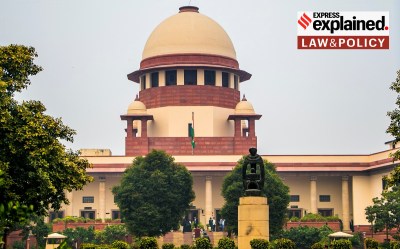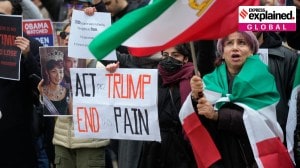Delhi146;s Durand Line
Throughout the subcontinent8217;s history, its north-western frontier has been the pivot around which the region8217;s security...

Throughout the subcontinent8217;s history, its north-western frontier has been the pivot around which the region8217;s security dynamic has turned. The exchange of hot words between Washington and Islamabad on the necessity and legitimacy of this week8217;s attack by the NATO forces on Pakistani soil is not a minor quibble. It is the noise from the rumbling of the tectonic plates on the Durand Line that separates Pakistan and Afghanistan. Since 9/11, the United States and the Pakistan army were supposed to be partners in fighting al Qaeda and Taliban. Although scepticism of the Pakistani army8217;s commitment to fight the very militancy it had nurtured over the years was widespread, Washington was prepared to trust Pakistan and lavish billions of dollars on its armed forces.
Amidst the expanding scale and scope of cross-border attacks on Afghanistan from Taliban sanctuaries in Pakistan, tension between Washington and Islamabad had risen in recent months. So long as he was in charge, President Pervez Musharraf seemed capable of managing the contradictions of the alliance with the US. His successor as army chief, General Ashfaq Kayani, and a chaotic civilian coalition that has come to power in the February elections have, however, begun to yield to militant demands in the name of a political approach to the war on terror. That Pakistan8217;s civilian leaders had no ownership of the war against extremism was well-known. However, it is the rapidity with which General Kayani has distanced the army from the American goals in Afghanistan that comes as a big surprise. This has put the US in a quandary 8212; of taking the war into Pakistani territory at the risk of further angering Islamabad.
As the world struggles to cope with the changes in Pakistan, India will not remain unaffected. From a practical perspective, the Durand Line is as much India8217;s frontier as it is of Pakistan. For one, if Pakistan8217;s leadership abandons the war on terror on the Afghan border, the frontline will inevitably move closer home. For another, General Kayani appears to have given up Musharraf8217;s restraint on cross-border terrorism with regard to India and has begun to up the ante in Jammu and Kashmir. Instead of remaining a passive bystander, the UPA needs to initiate serious consultations with the US and NATO to explore better coordination in the war on terror and in addressing the new sources of instability in Pakistan.
- 01
- 02
- 03
- 04
- 05































